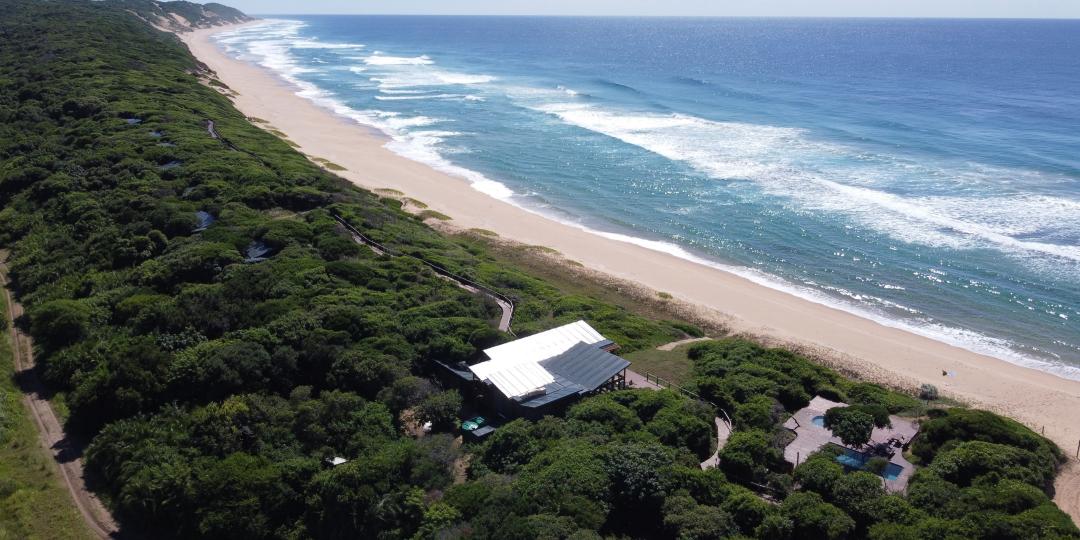The Government of Mozambique and Peace Parks Foundation celebrated the official inauguration of Membene Lodge last week – Maputo National Park’s latest tourism asset.
According to the two parties, this new lodge is a vital step in the park's vision to capitalise on a growing interest by local and international eco-tourists to experience Mozambique’s beaches and vast landscapes first-hand.
This is achieved whilst contributing to protecting nature and creating jobs and livelihoods for surrounding communities. Membene Lodge creates a vital revenue stream for Maputo National Park and surrounding communities.
The three-star lodge is eco-friendly and is situated at Ponta Membene, where the bush meets the beach. Accommodation includes a mix of 24 self-catering chalets with 80 beds, and campsites, entering the mid-market at a level that would be accessible to local Mozambican tourists as well as international travellers.
The park, in conjunction with Peace Parks and partners, also supports community projects, such as reproductive health, environmental education, and alternative livelihood programmes that currently benefit 18 810 people directly and 32 586 indirectly.
“We congratulate all those involved for the excellent efforts in park restoration, raising it as a symbol of national biodiversity, and an attraction for domestic and regional tourism. Peace Parks Foundation is a proven and excellent resource mobiliser that will follow us into the future in a dedicated partnership,” said Filipe Nyusi, President of Mozambique.
“Our government will continue to work for the protection and development of the landscape, and conservation of ecosystems and biological diversity. We are committed to sustaining natural resources for the benefit of the present and future generations.”
Maputo National Park has come a long way in its development, going from an area devoid of wildlife to a thriving ecosystem ready to welcome the world.
Initially, there was only one accommodation offering in the park – Anvil Bay Lodge at Ponta Chemucane, a boutique five-star facility, followed by Montebelo Milibangalala Bay Resort.
"With the support of Hansjörg Wyss and the Reinet Foundation, Peace Parks Foundation invested US$5 million in the construction of Membene to enhance the park's allure for international, regional and local tourists who want to experience pristine nature and, more importantly, to catalyse positive change by empowering and enriching the lives of local communities.
“With this latest investment and the anticipated revenues to be generated, the park is on track to cover its own operational costs by 2032,” said Werner Myburgh, CEO of Peace Parks Foundation.
An ambitious rewilding programme in Maputo National Park has been an essential driver of both ecosystem restoration and tourism development. From 2010, over 5 100 animals and 16 species have been translocated to the park, of which 12 are reintroductions. A recent wildlife census concluded that this number had grown to at least 14 000 wild animals now living in the park.
Tourism is extremely important for Mozambique as, prior to the 2020 global pandemic and associated travel restrictions, it contributed 6.2% to the country’s GDP. It also supports the communities who receive 20% of the revenue generated by national parks in Mozambique, over and above the employment opportunities it unlocks.
Maputo National Park’s journey
Part of Africa’s first transboundary marine protected area, Maputo National Park is a 1 795sqkm core component of the Lubombo Transfrontier Conservation and Resource Area.
It was proclaimed a national park in 2021 when Maputo Special Reserve and Ponta do Ouro Partial Marine Reserve merged under one management system. Peace Parks Foundation has been supporting the development of this area since 2006 and in 2018 signed a 15-year agreement with Mozambique’s National Administration for Conservation Areas to jointly restore, protect and develop the area.
At the outset, the park was plagued by poaching, devoid of wildlife and infrastructure, and lacking capacity to protect ecosystems and uplift communities.
With funding from the World Bank through MozBio, a community and park development programme, it has since seen significant investment in skilled management staff and essential infrastructure needed to efficiently manage the park.
This included headquarters offices, park gates, road infrastructure, staff accommodation and a range of protection facilities.
In 2023, an entrance gate at Machangulo, a surveillance tower in Ponta do Ouro and a staff house at Santa Maria were constructed.
In addition, a research and training centre was also upgraded, and a new field ranger base was constructed, which will greatly improve the living and working conditions of security personnel in the park.
Equipping the upgraded research and training centres were partly funded by winnings from Park Warden Miguel Goncalves' Tusk Award for Conservation in Africa. These facilities will foster awareness and expose young people visiting the park to the importance of nature conservation.























